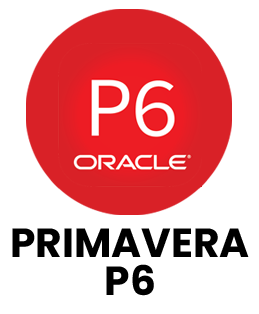In this project-driven, technology-driven world, PMP certification Chennai is an excellent way to advance your career and be rewarded with higher pay. ProThoughts is a Project Management Institute Premier ATP that offers training on PMI's new ATP material. This course has the added benefit of being a globally recognised and accepted gold benchmark certification to demonstrate expertise in the project management domain. ProThoughts project management training incorporates coaching from Rita Mulcahy's premium learning material, and PMP course content is updated to the most recent PMI's guide.
Project management is an industry-agnostic concept that applies to a variety of sectors and industries. Project management training teaches you the skills and knowledge you need to steer your projects to success. There are numerous Project Management courses available, and one of the most popular and in-demand certifications is the Project Management Professional Certification (PMP®). PMP® certification, offered by PMI, is one of the most popular project management certifications around the world, and ProThoughts Solutions PMP® Certification is very popular among participants.
Additional Info
Introduction Of PMP:
Project Management Certification is a well-known certificate that will help you advance in your career. A project manager must complete extensive 35-hour project management training in order to obtain the PMP® certification. ProThoughts, like other Project Management courses, offers PMP training.This course is designed to help you complete the necessary studies to sit for and pass the Project Management Professional (PMP)® certification exam.
The course is designed to help students not only pass exams, but also understand and apply concepts in real-world projects.Though this course is designed and developed with the PMP® examination in mind, we take a unique game-based interactive approach to ensure our participants' enjoyment and learning. This course is intended to provoke an application-oriented understanding of Project Management as a philosophy rather than a theoretical understanding of the Project Management Institute, Inc.® Guide.
Framework Based on PMP:
- Introduction.
- Agenda.
- A Project's Definition.
- What exactly is project management?
- What exactly is programme management?
- What exactly is Portfolio Management?
- Office of Project Management (PMO).
- The Trifecta of Constraints.
- Management of Stakeholders.
- Structure of the Organization.
- The Product Life Cycle vs. the Project Life Cycle.
Benefits of PMP:
- Certification that is globally recognised.
- To become a better project manager, the best practises of numerous project managers from around the world have been incorporated.
- As you become more organised, your project's success rate rises.
- Reducing resource consumption and making a project more cost effective.
- It alters how others perceive your abilities.
- To keep your job, get promoted, or find a new job.
- Increase in your current salary (Help you to get ahead).
Who can Start PMP:
1. If I'm enrolled in training, how many batches can I attend?
ExcelR provides a blended learning model. Participants in this model can enrol in classroom, instructor-led live online, and e-learning (recorded sessions) with a single enrollment. A combination of these three will have a synergistic effect on learning. With the all new and exclusive, one can attend multiple Instructor-led live online sessions from different trainers for one year at no additional cost.
2. Why Should You Use ExcelR For PMP® Training Certification?
Our faculty members have over 20 years of experience and come from prestigious B schools such as IIM and ISB. They understand the nuances of passing the PMP® exam. Tips and Tricks gained from their years of experience will be shared with you, which will be useful in passing the PMP® exam. They are certified, qualified, have decades of industry experience, and are enthusiastic about training.
We provide you with the EXCELR PMP EXAM PREP PLAN, which was created by industry subject matter experts to ensure that you pass the PMP® exam on the first try.Our distinct training methodology ensures that your fundamentals are extremely strong at the end of the training. By the end of the training, you will have access to all Process Groups, Processes, Knowledge Areas, and ITTO. To pass the PMP® exam, you must have a solid foundation in PMP® concepts.
You will be a member of the ExcelR PMP® WHATSAPP group, a forum where you can answer PMP® questions posted by us, interact with your fellow PMP® participants, and share the experiences of those who have already taken the PMP® exam.PMP® E-learning videos and recorded sessions will be made available to you so that you can revise and recap the lessons at your own pace and convenience. Each participant will be assigned a trainer to act as a mentor until certification. The 2,000+ chapter-wise and end-to-end practise questions will ensure that you have enough practise to pass the PMP® certification exam.
Regular class and homework assignments ensure that knowledge is acquired on a consistent basis.A particular emphasis on Formulae questions will aid in answering at least 25-30 questions on the exam.The course content was meticulously designed by experienced subject matter experts and is accredited by various international bodies, ensuring quality learning.
Following the training, ExcelR provides the necessary hand-holding. You can schedule an appointment with the trainer to clear their doubts until they are certified.
3. What Exactly Is PMP?
PMP® – Project Management Professional is a credential administered by the Project Management Institute. PMP is a globally recognised certification that demonstrates one's ability to lead, direct, and manage projects in any domain. PMP® certification assists individuals in increasing the marketability of their profiles to employers, standing out from the crowd, and maximising their earning potential. The training and certification are based on the 5th edition of the Guide to the Project Management Body of Knowledge.
Career Path of PMP:
A project manager is in charge of coordinating and supervising the tasks of a group. They are accountable for project success or failure, timelines, budgets, scope creep, and other factors, making project management one of the most sought-after career paths today. Project managers not only have a say in what happens on their teams, but they also have a lot of say in how they interact with other people-centered departments like sales management and marketing.
This can result in high salaries, which can lead to more opportunities from larger companies where the work-life balance will be easier than in smaller firms, which frequently require long hours when deadlines are approaching.You can advance as a project manager or make a lateral change to a specific field, but you can also pursue an entirely new career.
A career as a business analyst or operations manager may be a good fit for your skillset. This type of career change could even lead to a position in the C-suite as a chief operations officer (COO). Even if you no longer have the title of Project Manager, you can still put your project management skills to use. A move to a completely new career, like a horizontal move to a specific industry, may necessitate the acquisition of additional skills specific to that position if you want to succeed.
Roles and Responsibilities of PMP Certification Training:
1 - Create the big idea:-
In many cases, even the basic structure of the project will be unclear when it is born. It is the Project Manager's responsibility to develop the big idea. A project manager is expected to pick up an idea and become involved in the project's early stages. Then create a full business case and turn it into a project plan that can be successfully executed. In general, the project manager handles them all, starting from the ground up and visualizing the feasibility of execution.
2 - Assemble the team:-
When an idea appears to be feasible, the project manager's role is to put it together by forming a team that can work on making that layout a reality. Hiring new members on a regular basis is not feasible, so it is the project manager's responsibility to gather available resources and coordinate with the3 - Plan organisation and coordinationWhen the team is first formed, the project manager collaborates with the team members to define the tasks that must be completed. By defining the work clearly, he ensures that every member of the team understands the goals and objectives.
3 - Plan organisation and coordination:-
When the team is first formed, the project manager collaborates with the team members to define the tasks that must be completed. By defining the work clearly, he ensures that every member of the team understands the goals and objectives. It's a good idea to frame everything in terms of business value or benefits: in other words, explain why you're taking on this new project.
4 - Be the team's leader:-
Once the team understands the benefits, the project manager assembles the team. He is the one who leads the team, with the goal of accomplishing something as a group. Leading the team is not an easy task because it entails negotiating the challenges of disagreements and conflict, as well as staying on top of things and communications at all times. In order to do a great job, even during difficult times, he must coordinate by motivating the team and acting as a coach to the team.
5 – Decision-making authority:-
A project manager is responsible for all of the project's major decisions. The decision power is held by the project manager, whether in the form of a suggestion, recommendations, or demand. For decisions that must be approved by the customer, the Project manager's negotiation and persuasion skills come in handy. The project manager engages stakeholders by working with the people involved in the project to ensure that they understand and anticipate the changes that will occur. The Project manager gains these abilities through experience and focus.
6 –Achieve the goals that have been set:-
The ultimate goal of the team is to complete the project on time, and the project manager ensures this by being accountable for it. The ability to deliver on what was promised effectively defines the project manager's success. Having a checklist and measuring it by comparing the amount of work committed versus the amount of work completed gives the project manager control over the deliverables.
7 - Oversee the handover:-
Now that the project tasks have been completed, the project manager's most important role at the end of the execution phase is to ensure that the customer and end users receive a clear and complete handover. If the execution and handover are flawless, handing over the project to the project management team will allow the project manager to take a step back.
Skills in PMP:
Motivation:
- Instilling motivation in yourself and your team is one of the first skills the PMP certification helps you develop.
- Motivation skills ensure that your project team members remain engaged in the project, give their all, and collaborate to achieve a common goal.
- The PMP exam is far more difficult to pass than most people believe. Every week, candidates must devote dozens of hours to learning the fundamentals of project management.
- They must do this while maintaining their regular jobs and responsibilities at home.
- It is impossible to maintain such strenuous routines without the ability to motivate oneself and others.
Communication:
- Some of the most important skills for a project manager are good communication skills.
- Project managers must spend 90% of their time communicating with others.
- Unsurprisingly, many project managers regard communication as their primary job function within the organisation.
- Candidates learn how to manage and lead a team, how to resolve conflict, and how to manage stakeholders while studying for the PMP exam.
- Being PMP certified denotes that you are a strong communicator with strong leadership abilities.
Solving Issues:
- PMP certification is essential for improving project managers' problem-solving abilities.
- Project managers are educated to solve complex problems that necessitate a thorough understanding of project management techniques and tools.
- This is why, after completing the certification, PMP-certified project managers are assigned to more complex projects.
- It can be multi-year projects, multi-million dollar projects, or international projects involving teams from all over the world who speak different languages.
Making a Decision:
- To be successful in his or her role, a project manager must possess a wide range of skills.
- None, however, are more important than being decisive and making sound decisions at the appropriate time.
- The PMP certification teaches all of its candidates to become acquainted with all techniques that improve the decision-making process.
- PMP candidates are taught to value input from their team members in order to reach a consensus and make quick decisions to address problems as they arise.
- As a project manager, you will frequently be the primary decision-maker in a project.
Advantages of PMP Online Certification Training:
The World's Best Certification:
- The PMP certification, which is internationally recognised, validates project management knowledge.
- Furthermore, the PMP is a highly regarded and globally recognised credential.
- PMP has credibility in over 80 countries worldwide. It is highly valued in a variety of industrial sectors.
Greater Earning Potential:
- It is the most crucial point for salaried professionals all over the world.
- According to PMI, there is a significant advantage in terms of earning potential and salary.
- Companies also seek PMP-certified candidates.
- As a result, you have an advantage over non-certified individuals.
Increased Job Opportunities:
- PMP is a single certificate that has gained global recognition, and the demand for certified PMP professionals has grown over the years.
- Because the demand for PMP credentials has increased in a variety of industries, it is becoming increasingly important and a good opportunity for you to gain an advantage over non-certified project managers.
- Only those with the necessary experience, knowledge, and training are offered the best jobs in the industry.
Professional Success:
- This certificate provides professionals with an advantage over and above their basic educational qualifications.
- It also implies that the certified professional is skilled at project management.
- The industries take note of certified professionals and regard them as more likely to complete the project on time and within the budget constraints.
Provides credibility:
- When applying for a job, your resume is essential for communicating with potential employers.
- As a result, your resume is critical in distinguishing your candidacy from the crowd.
- When a recruiter sees your PMP-certified resume, they will immediately recognise your dedication to your career, as well as your experience, knowledge, and skill sets.
- To become a PMP, you must first complete extensive training.
- It necessitates a certain number of training hours.
Payscale of PMP:
1. If you are a project management professional or are considering a career in the field, you can expect to earn nearly double the median wage of the full-time workforce in the United States.
2. In the third quarter of 2019, the average earned 47,788lakh for full-time work, according to the Bureau of Labor Statistics.
3. Project management professionals, on the other hand, earn a median salary of 92,000k.
4. That figure is even higher for those who hold a PM®(Project Management Professional) Certification: PMP Certified professionals earn 23% more than those who do not hold the prestigious credential.







































